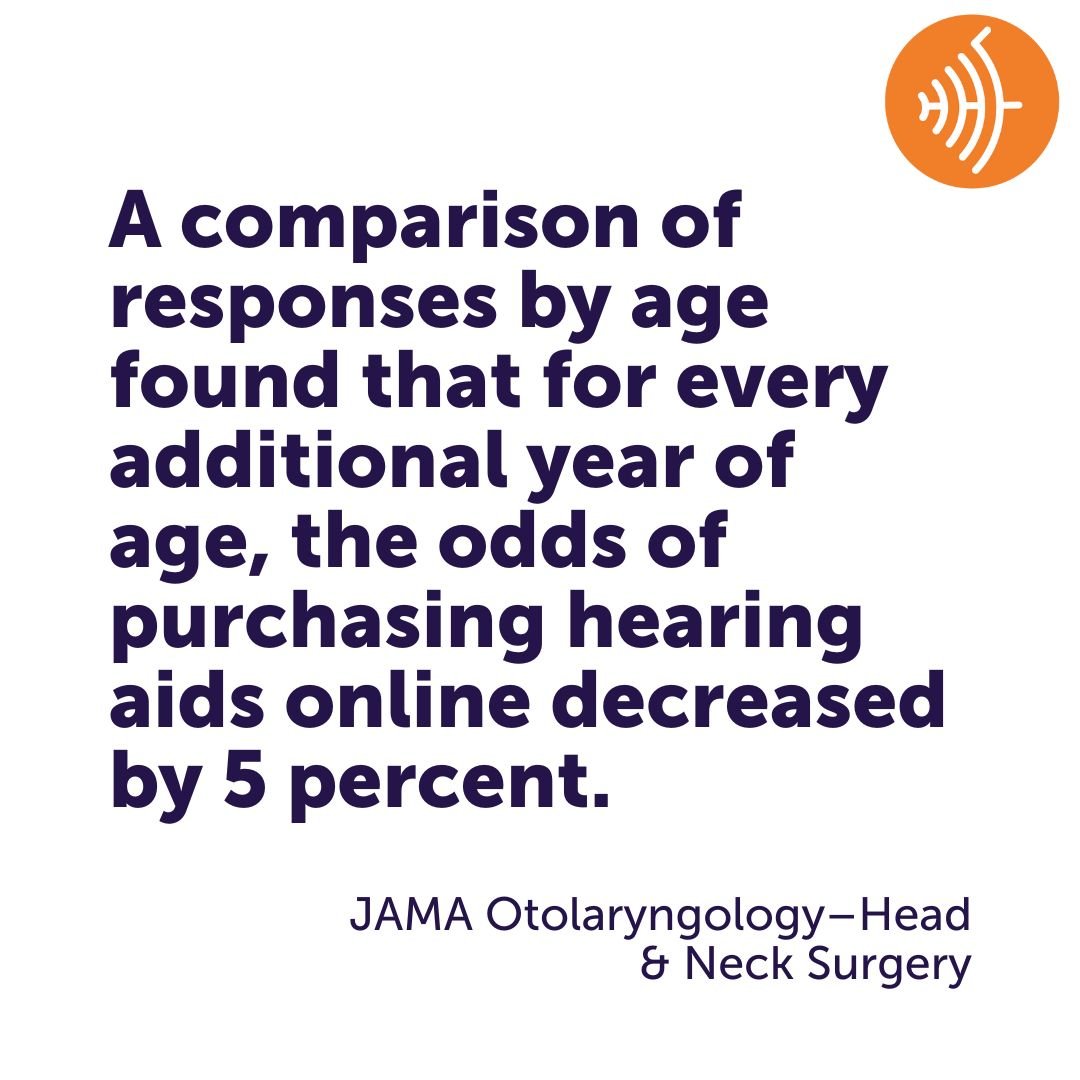By Stephen O. Frazier
The availability in October 2022 of the Food & Drug Administration’s new category of over-the-counter (OTC) hearing aids—for adults with perceived mild to moderate hearing loss—set the stage for a possible revolution in the way people with hearing loss address that disability. Some of these new, medical-grade hearing aids offer much of the remarkable technology now available in prescription devices that are as much as 50 percent less expensive. The Lexie Lumen, a behind the ear model that even includes telecoils, sells for $799 a pair at Walgreens. Except for Bluetooth connectivity, it offers features found in devices that could cost up to $2,000 or more at the typical hearing aid clinic.
Both consumers and retailers have entered uncharted territory with OTC devices and the big question now is, will people buy them?
To find out, Northwestern University researchers looked at the maturing hearing aid market and business model for the online purchase of hearing aid. Their study, Assessment of Consumer Attitudes Following Recent Changes in the U.S. Hearing Health Care Market, was published in JAMA Otolaryngology–Head & Neck Surgery online on Jan. 19, 2023. The researchers Jasleen Singh, Ph.D., and Sumitrajit Dhar, Ph.D., aimed to determine consumer attitudes toward the direct-to-consumer (DTC) model for the sale of hearing aids as a way to provide less expensive hearing health care. (For our purposes, DTC and OTC can be interchangeable here.)
The results show a belief that, although DTCs play a critical role in consumer product trust and use, evaluations of the efficacy of various models for the delivery of hearing healthcare often do not include consumer attitudes and perceptions in their design.
People on limited incomes and those without hearing care coverage in their health insurance are primary candidates for OTC hearing aids, according to their proponents, and in this survey they were found to be the most likely to explore the purchase of hearing aids online.
However, this study found the general public to be quite skeptical in regard to DTC marketing, reporting that 84 percent of the survey’s 1,037 participants expressed discomfort with the idea of shopping for DTC hearing aids and a preference to pursue their acquisition through a hearing healthcare professional. That figure went down for those respondents with higher incomes and also with a higher education level.
The mean age for the group was 61.4 years old and none were hearing aid owners. Some considered themselves candidates for hearing aids and some did not. Women outnumbered men two to one. Over 75 percent of the respondents did not know or were at least not aware of having insurance to cover the purchase of hearing aids.
Fewer than 5 percent of respondents felt extremely comfortable with the idea of purchasing hearing aids online without a hearing test. That comfort level doubled if the purchase would be made as a result of a hearing test. Conversely, nearly 40 percent felt extremely uncomfortable making a purchase without a hearing test, compared with under 10 percent who felt extremely uncomfortable even if they had had a hearing test.
A comparison of responses by age found that for every additional year of age the odds of purchasing hearing aids online decreased by 5 percent.
Most OTC hearing aid sellers offer an online or in-store hearing test but, if the same attitudes recorded in the survey carry over to OTC hearing aids, the study’s findings indicate less than half of seniors would feel slightly to completely comfortable with buying the devices. Nearly 30 percent would be slightly to extremely uncomfortable.
The conclusion of the paper’s authors was that it will take some time before the DTC sale of hearing aids will be universally embraced by the general public. As time passes, though, and consumers become accustomed to the direct delivery of hearing care products, the researchers felt that the actual rate of hearing aid use by consumers will increase. Currently only 20 percent of the nearly 29 million U.S. residents who could benefit from hearing aids have them, according to the National Institute on Deafness and Other Communication Disorders.
The survey found that there are consumers who are willing to consider DTC hearing care—particularly those with lower incomes or no hearing aid insurance, and those who have had positive experiences with DTC healthcare in other areas. As a final recommendation, the study authors encourage purveyors of hearing healthcare to design and implement focused public health messaging to increase consumer confidence in DTC hearing health care.
Trained by the Hearing Loss Association of America as a hearing loss support specialist, Hearing Health magazine staff writer and New Mexico resident Stephen O. Frazier has served HLAA and others at the local, state, and national levels as a volunteer in their efforts to improve communication access for people with hearing loss. Contact him at hlaanm@juno.com.








Because noise-canceling earbuds are so comfortable and block everything out, people wear them for three, four, five hours straight without realizing the cumulative effect on their ears.